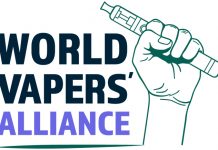A new study has been published by Cochrane titled “How effective are medications and e-cigarettes for quitting smoking, and what works best?”
Various therapeutic methods of quitting smoking are discussed to help find the most effective.
“E-cigarettes, and the medicines cytisine (otherwise known as Tabex) and varenicline (otherwise known as Chantix and Champix), appear to help the most people to quit smoking, followed by using two types of nicotine replacement therapy at once (nicotine patch and another type, such as gum or lozenge).”
Existing Randomised Controlled Trials (RCT) were examined where the participants received a random product to assist in stopping smoking.
There were 332 studies which met the criteria and 319 provided the information required for the analysis.
Altogether there were 157,179 cigarette smoking adults who took part mostly in the USA and Europe.
The studies compared the effects of the following assistance…
- no medicine/e-cigarettes for stopping smoking
- e-cigarettes that did not contain nicotine
- placebo (a dummy medication)
- other types of stop smoking medicine or e-cigarettes.
Results
E-cigarettes, varenicline and cytisine all came out as the most effective treatments.
For every 100 people…
- 10-19 are likely to quit using a vape
- 12-16 using varenicline
- 10-18 using cytisine
- 6 using no assistance or a placebo
Conclusions
I have copied and pasted the conclusion from the document…
“The most effective interventions were nicotine e‐cigarettes, varenicline and cytisine (all high certainty), as well as combination NRT (additive effect, certainty not rated). There was also high‐certainty evidence for the effectiveness of nicotine patch, fast‐acting NRT and bupropion (Zyban). Less certain evidence of benefit was present for nortriptyline (moderate certainty), non‐nicotine e‐cigarettes and tapering of nicotine dose (both low certainty).
There was moderate‐certainty evidence that bupropion may slightly increase the frequency of SAEs (Serious Adverse Events), although there was also the possibility of no increased risk. There was no clear evidence that any other tested interventions increased SAEs. Overall, SAE data were sparse with very low numbers of SAEs, and so further evidence may change our interpretation and certainty.
Future studies should report SAEs to strengthen certainty in this outcome. More head‐to‐head comparisons of the most effective interventions are needed, as are tests of combinations of these. Future work should unify data from behavioural and pharmacological interventions to inform approaches to combined support for smoking cessation.
Related “X” Posts
New report from Cochrane. E-cigs win again!
“E-cigarettes, varenicline & cytisine were most likely to help people quit smoking. For every 100 people, 10 to 19 are likely to quit using an e-cigarette; 12 to 16 using varenicline; & 10 to 18 using cytisine.” https://t.co/PGQGES9quV— Lance Churchill (@LanceChurchill) September 12, 2023
A Cochrane analysis of 319 studies found that vaping was the most effective means of smoking cessation compared to other methods.https://t.co/cR6Yj7ZdHZ
— Dimitris 🇬🇷 🇺🇸 (@VapinGreek) September 12, 2023
A Cochrane analysis of 319 studies found that vaping was the most effective means of smoking cessation compared to other methods. https://t.co/ij1hs4Q1sz
— European Tobacco Harm Reduction Advocates (@europethra) September 12, 2023
Vaping tops the table for successful quitting.
“For every 100 people, 10 to 19 are likely to quit using an e-cigarette; 12 to 16 using varenicline; and 10 to 18 using cytisine.”https://t.co/mCfVD4FY7L— NNA Ireland (@IrelandNna) September 12, 2023
JUST PUBLISHED – #ecigarettes, varenicline and cytisine are the most effective #stopsmoking aids, Cochrane analysis of over 150,000 #smokers reveals
📃 Read the #systematicreview https://t.co/ymCLOoIb6v
🤓 Authors explain the evidence https://t.co/sW6QPLCzRn pic.twitter.com/YEVwscVvMZ— The Cochrane Library (@CochraneLibrary) September 12, 2023






